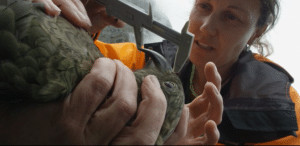Get involved!
If you are interested in helping kea become lead-free by sponsoring a kea receiving treatment, starting up a local project or donating materials, funding or your expertise, please get in contact with us. For a list of what we need, please scroll down to the bottom of the page. Thank you!
To view a list of our main Sponsors and Project Partners, please scroll down the page.
Project Background
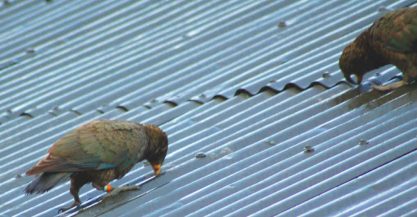
One of the main identified threats to kea is lead. Monitoring by the Department of Conservation (DOC) since 2006 has shown that lead toxicity in kea is widespread throughout the species range, wherever kea and humans overlap (McInnes, 2010). Testing of 42 Mt Cook kea (Reid et al, 2012) found all to have detectable blood lead levels, 32 considered elevated. An additional 5 out of 12 dead kea tested were diagnosed with lead poisoning. Lead is sweet and malleable and as such is highly attractive to kea. As a toxic heavy metal, it accumulates in the bird's body causing nervous system damage, organ failure and eventually death.
How do Kea get lead poisoning?
Lead is present as paint, flashings and nail heads in many buildings that were built prior to the 1990s and in lead shot used by hunters. Until it is removed from the South Island, Kea will continue to test for lead and to die of lead poisoning at an alarming rate.
However, the good news is that kea CAN be treated for lead poisoning and lead products CAN be removed and replaced with non-toxic alternatives, but to do this we need your help!
How bad is the problem?
Because kea access lead from a number of sources ( particularly old buildings, huts and lead shot), they are at risk whether in backcountry locations such as the Perth catchment on the West Coast or around human habitation such as Arthur's Pass.
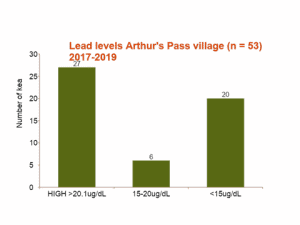
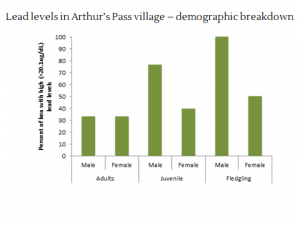
Project Aims
This project aims to decrease the threat of lead to kea through initiation of a 5 step process:
i) testing blood lead levels in kea throughout their south island range,
ii) facilitating community treatment of affected kea,
iii) identifying sources of lead in the environment and facilitating their removal,
iv) replacing lead products with nontoxic alternatives as funding allows and
v) raising of funds and support to support community efforts.
Project Outcomes
2018 - end of March 2021
A total of 439 kea have been blood lead tested by the KCT in predominantly “front country” sites (ie around human habitation) in Fiordland, in South Westland, Aoraki Mt Cook, Arthur’s Pass, at ski fields and at Nelson plantation forestry sites. Many of the kea at these sites have returned concerningly high blood lead levels.
Additional kea have been tested in “back country” sites in Fiordland (the Murchison and Stuart Mtns) and Mt Aspiring National Parks Matukituki Valleys. The majority of these kea have returned very low blood lead levels.
For a detailed breakdown of the results, please go to our Lead Free Kea Project Outcomes.
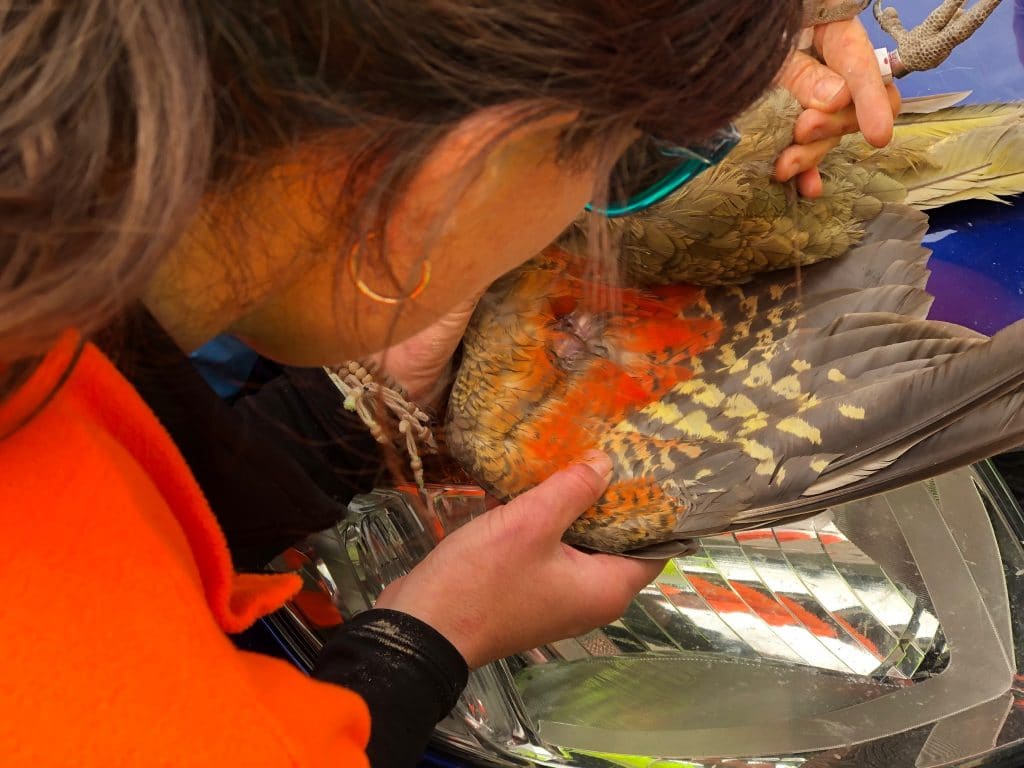
Community Support
South Island communities have expressed a commitment to protect local remnant kea populations from threats such as lead. Extensive community collaboration has already been activated with the KCT and DOC working alongside the wider community throughout the South Island with a number of lead removal initiatives been initiated in South Island communities this year. This project aims to activate and support all communities within kea habitat.
Project Partners
We rely on passionate people in our communities to help rid kea of the lead threat. If you would like to join this drive to make our environment lead-free for kea, please contact us!
Our project partners include sponsors/donors, veterinary support, wildlife parks for rehabilitation, de-leading volunteers and the many volunteers transporting sick kea for treatment. To date these include the following:
Sponsors/Donors (over $1,000):
- Franz SkyDive - $11,059
- NZ Parrot Trust - $5,000 (lead test strips)
- Clever Kiwi Company - $5,000 (for Arthur's Pass kea)
- Christopher Hynes - $2,000
- NZSki - $1,300 (Remarkables skifield kea)
- Rocky Mountain American Association of Zookeepers (RMAAZK) - $1,300 (lead test strips and travel)
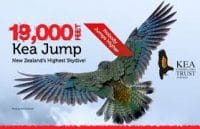

Veterinary Support:
- Hornby Veterinary Clinic
- South Island Wildlife Hospital
- Vetent -Queenstown
- The Wildlife Hospital - Dunedin
- Wildbase - Massey University
Rehabilitation Centres:
- Willowbank Wildlife Reserve (Christchurch)
- Kiwi Birdlife Park (Queenstown)
De-leaders
- The Tasman"Lead Heads"
- Arthur's Pass Community
- Backcountry Trust
- DOC
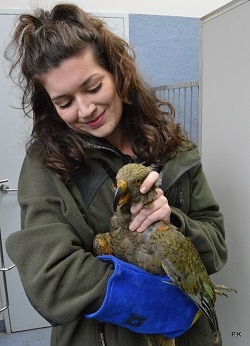
Supply of alternative building products
- Tasman Roofing - provision of tech screws and flashings for Tasman de-leading Project
Getting our message out there! Our PR crew
- Daniel Sweeney - Total Brand
- Mat Goodman (Nomad Collection) and Brooke Segerberg
What we need to help make this project a success:
- Funding - even small donations will help us kick start local community projects! We need funding for roofing products, contractors, medical supplies, lead test strips, fuel for volunteer transporters, project coordination and on-going care of kea in rehabilitation.
- Non-toxic alternatives to lead - we need flashings and techscrews to replace old lead products.
- Roofing contractors - we need registered contractors (with their own H&S) to replace lead products. If you are able to donate your time or help your community at a reduced rate, please get in contact with us!
- Vets - we need more vets around the South island (particularly in remote areas) to help with initial stabilisation of sick kea and to help with chelation therapy.
- Kea transporters - sick kea in remote areas which need specialist care need to be transported to some of our larger centres for transfer or care.
Sponsor a sick kea needing treatment!
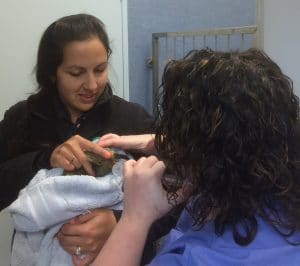
Every kea returning blood lead results of over 20ug/dL will be sent to one of our veterinary partners for chelation therapy. This treatment is costly, and although vets are providing much of their services for free to help these kea, we need to support them by raising funds for the medicines that will ultimately save these birds' lives.
Please donate now and help our lead-poisoned kea get the treatment they need!
